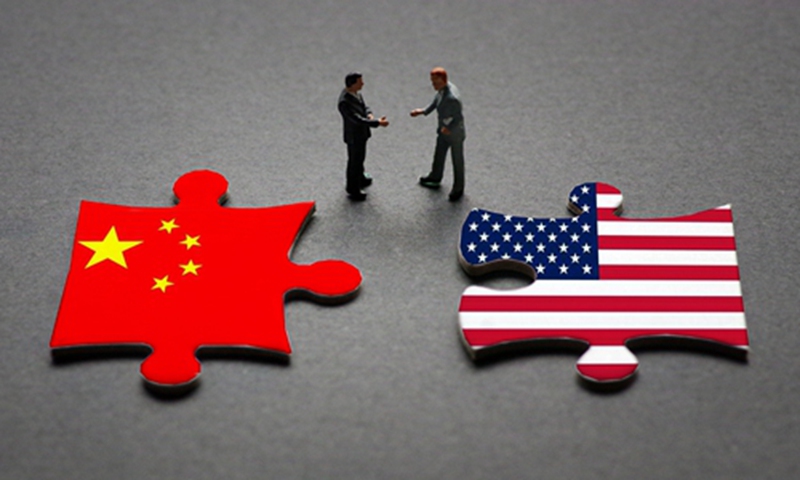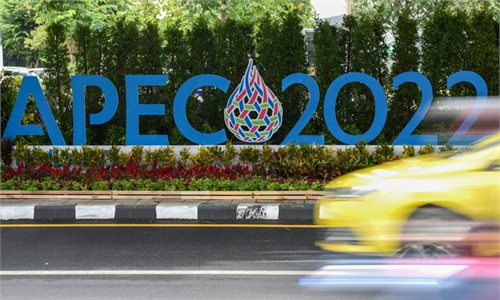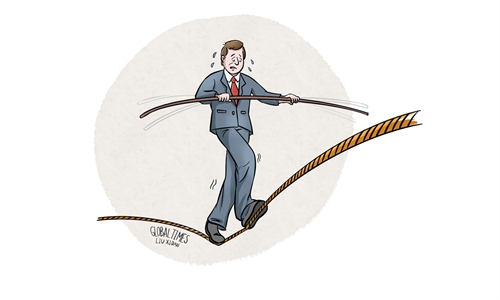China watches for 'substantial actions' from US following US official's call for resumption of military talks

File Photo: IC
Washington's top national security official has claimed the US wants to resume defense talks with China, but it is likely that China will watch for concrete statements and actions from the US rather than responding immediately, analysts said.
US National Security Adviser Jake Sullivan said on Monday that the US wants to get the military-to-military communication between China and the US "back on track," which he said can "help create more stability and reduce the risk of misunderstanding," the South China Morning Post (SCMP) reported on Tuesday.
Earlier in August, as part of countermeasures after US House Speaker Nancy Pelosi's provocative visit to Taiwan island, China suspended the talks. The dialogue mechanism in certain areas between the governments has not yet been resumed.
Sullivan's statement is the latest in a recent series of positive signals from top US officials about China, after tensions rose in China-US relations since August.
On November 1, the White House said that China and US officials are "still working to arrange a face-to-face meeting" between the two countries' presidents during the G20 summit in Bali later this month. The information has not been confirmed by the Chinese side.
In September, US climate envoy John Kerry also urged China to resume bilateral talks, in order to "avert a global warming crisis," Reuters reported.
China called off these dialogues to defend its sovereignty, giving the US what is seen as a "cooling off period," Lü Xiang, an expert on international relations at the Chinese Academy of Social Sciences, told the Global Times on Tuesday.
"It is impossible for China to smile in the face of a major provocation," Lü said. "But China's response was very restrained and did not impose restrictions on normal economic activities."
During the three-month suspension of the China-US talks in these areas, the US has clearly sensed the risks of the situation, the expert noted.
In addition, China has demonstrated its defensive capabilities in recent drills. "The US Department of Defense must be seriously considering the consequences of continued tensions with China," Lü noted.
However, China is unlikely to cater directly to the pronouncements of some US officials, but will watch and consider them carefully, Lü said.
The extent to which Sullivan's statement represents the voice of the US government remains to be evaluated, Lü said, noting that it is also uncertain what foreign policy adjustments the White House will make after the midterm elections.
Although China will expect a positive attitude from the US, it will not bet too much on it but continue to watch, he said.
On October 28, Chinese State Councilor and Foreign Minister Wang Yi met with US Ambassador to China Nicholas Burns, demonstrating a positive attitude and expectations for the development of China-US relations.
Neither China nor the US can change the other, and the US should stop trying to deal with China from a position of strength and stop trying to suppress and contain China's development, Wang stressed.
Wang also said that the international community generally hopes for stable development of China-US relations, to which Burns responded that the US is willing to strengthen communication with China, manage differences, and advance cooperation.
China remains hopeful about the prospects for better relations, but the US has not abandoned its efforts to crack down on China in some areas. China will continue to watch the situation until the US makes more sincere statements and moves to dispel the previous negative influence, observers said.
Chinese Foreign Ministry spokesperson Mao Ning said in October that there need to be favorable conditions and an enabling atmosphere for relevant communications to resume.


